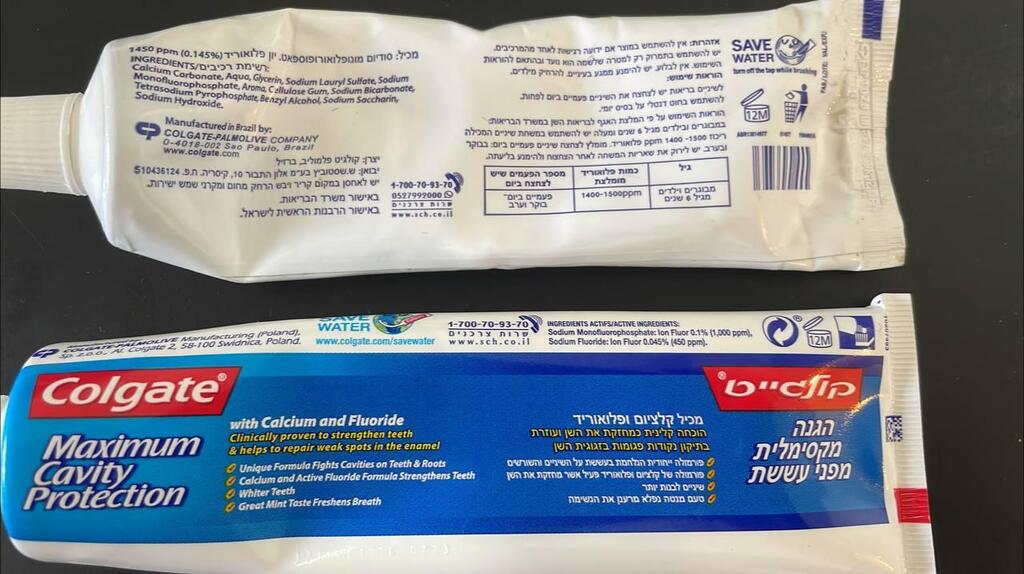Getting your Trinity Audio player ready...
A Colgate customer was surprised to discover that the taste of his regular toothpaste had changed and consumers had not been notified of the change. Although it's still mint-flavored, the old, mild minty toothpaste changed to stronger peppermint.
The product in question is the Colgate Maximum Cavity Protection in its classic red, white and blue package. A preliminary observation shows that the ingredients have not changed, only the taste is different, possibly due to the change in origin.
"Customer service told me that the previous version will not be sold in the near future. The current version is kosher for Passover, so it tastes different and it will be sold from now on. I wouldn't have bought this toothpaste if I had known in advance. I also assume that manufacturing in Brazil is cheaper than in Poland, but the price did not go down," the disgruntled customer said.
A change in the toothpaste's taste seems like a substantial change in the product and would certainly affect consumer affinity, even when the change is from one flavor of mint to another. Often those who prefer the taste of the previous mint will dislike the new mint taste. Consumers buy toothpaste mainly for health reasons but also for taste reasons.
Why not inform consumers about the taste change?
Although the company stated that the change complies with the law, it will be examined by the Consumer Protection and Fair Trade Authority. It may be decided that the company did not break any laws, but why not tell the consumer? Isn't that the right thing to do, to inform consumers that the taste of the toothpaste they are used to has changed?
This behavior may not necessarily comply with the law because we know examples of companies which recalled their products only due to the change in taste. For example, Tnuva recalled yogurt just because the flavor was slightly different but did not contain any health risks. Recalling a product may imply a problem with the product but it improves the trust in the firm and informing the public about a taste change should be done in writing or a label.
Also, why did the importer switch to Brazil from Poland, which is closer to Israel? According to sources, the Colgate factories in Poland are unable to support the demand which prompted Schestowitz to import other kinds of Colgate toothpaste from Mexico in addition to Brazil.
The Consumer Protection and Fair Trade Authority responded: "The issue will be examined by the authority. As a general rule, the importer/manufacturer must disclose every essential detail about the product and every essential change in the product. A change in the taste of the product will sometimes be considered an essential detail that must be disclosed to the consumer."


